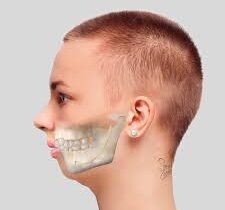Pregnancy is an exciting time for many women, but it also has various physical changes that can impact oral health. Hormonal changes during pregnancy can make gums more susceptible to inflammation and infection, leading to gum disease if left untreated.
In addition, morning sickness and cravings for sugary foods can increase the risk of tooth decay. Therefore, pregnant women must pay extra attention to their oral hygiene routine and dental care. It will help if pregnant women know tips and strategies for caring for teeth and gums during pregnancy. Women can also contact a dentist in Lakewood Ranch, FL, if they need professional guidance for managing their dental health.
Tips for caring for teeth and gums for pregnant women:
- Maintain good oral hygiene
Maintaining good oral hygiene involves:
- Brushing your teeth twice daily with fluoride toothpaste.
- Flossing daily.
- Rinsing your mouth with an antiseptic mouthwash.
Pregnant women should also pay attention to their diet, avoid sugary and acidic foods, and drink plenty of water to reduce the risk of developing dental problems like tooth decay and gum disease. Good oral hygiene helps prevent the accumulation of plaque, which can lead to gum disease and other oral health issues that may cause complications during pregnancy.
- Watch your diet
During pregnancy, it is crucial to maintain a balanced diet for the health of both the mother and the baby. A diet rich in calcium, vitamin D, and vitamin C can help support healthy teeth and gums. However, limiting sugar and acidic foods is also essential, which can contribute to dental problems such as tooth decay and erosion. Eating fruits, vegetables, lean protein, and whole grains can help promote oral health during pregnancy.
- Visit the dentist regularly.
Visiting the dentist at least once during pregnancy is recommended for a check-up and cleaning. It can help to prevent or detect any dental issues early on, and the dentist can provide personalized advice on maintaining good oral hygiene during pregnancy. It is crucial to inform the dentist about the pregnancy and any medications being taken.
- Use fluoridated products
Using fluoridated products during pregnancy is essential to protect your teeth and gums. Fluoride strengthens tooth enamel and helps prevent decay. You can use fluoridated toothpaste and mouthwash and even drink fluoridated water. Consult your dentist to determine the right amount of fluoride to use during pregnancy, as excessive fluoride intake can be harmful.
- Manage morning sickness
Morning sickness can cause acid erosion of teeth. To manage morning sickness, rinse your mouth with water mixed with a teaspoon of baking soda, which can help neutralize the acid in your mouth. Also, avoid brushing your teeth immediately after vomiting, as this can cause further damage to the enamel. Instead, wait an hour and then brush your teeth with fluoride toothpaste and a soft-bristled toothbrush.









